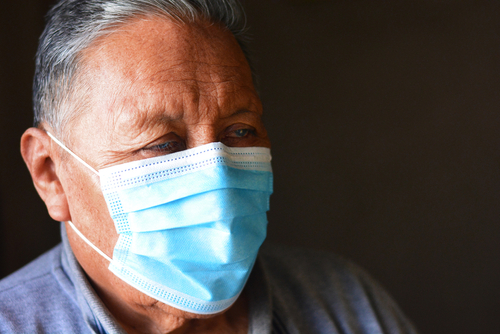U.S. Reps. Dusty Johnson (R-SD) and Kim Schrier (D-WA) introduced two bills related to the health care of Native Americans.

The bills seek to hold the Indian Health Service (IHS) accountable for disregarding health care bills owed to providers and protect Native Americans’ credit from wrongfully charged medical bills owed by IHS through Purchased/Referred Care (PRC) claims.
By way of background, certain tribes are “direct service” tribes, meaning their citizens receive healthcare directly from the IHS. These individuals will often require care that is outside the capacity of the IHS facility where they receive care. In that case, IHS can utilize the PRC program to acquire specialty or different care for an eligible individual through non-IHS providers.
However, IHS’s management of the PRC program has resulted in negative impacts for many Native Americans. For example, a 2020 study by the Department of Health and Human Services (HHS) found that an estimated 658,025 of 802,470 IHS PRC claims for 2019 were not reviewed, approved, or paid in accordance with federal law. As PRC bills go unpaid by IHS, tribal citizens are left to bear the brunt of these costs.
So, the Purchased and Referred Care Improvement Act of 2024 would ensure that IHS – not the tribal citizen – is liable for payments for PRC services that are or were authorized by IHS.
It would also direct the Secretary to notify PRC providers and patients that the patients are not liable to any provider or debt collector for charges associated with authorized PRC services. Further, it would permit IHS to establish and implement procedures to allow patients that paid out-of-pocket for IHS-authorized PRC services to be reimbursed by IHS no later than 30 days after a patient submits the necessary documentation.
Additionally, the Protecting Native Americans’ Credit Act of 2024 would exclude medical debt attributable to IHS-authorized PRC services received at a non-IHS facility from a Native American’s Consumer Report. It would also provide Native Americans with a dispute process for inclusion of debt for authorized medical services rendered on a consumer report. In addition, it would require HHS to send a notice to the individual that HHS has assumed liability for part of or all of the medical debt and direct reporting agencies to delete all information related to medical debt from file and notify furnisher and consumer of deletion.
“Many know the frustration when debt is sent to collections, especially when the bill isn’t ours to pay,” Johnson said. “IHS often falls short in its obligation to pay medical bills from Purchased/Referred Care in a timely manner and Native Americans are often forced to pay the bills they don’t owe, or else risk-taking substantial hits to their credit, hindering their ability to get a loan, buy a home, and more. My bills seek to rectify this unfair negligence by IHS.”
The bills were co-sponsored by Reps. Cathy McMorris Rodgers (R-WA), Teresa Leger Fernandez (D-NM), Ryan Zinke (R-MT), and Dan Newhouse (R-WA).
“The damage caused by these unpaid, unprocessed claims can be devastating for members of our tribal communities – the outstanding debt and impact on their credit score are incredibly harmful to their financial future,” Schrier said.